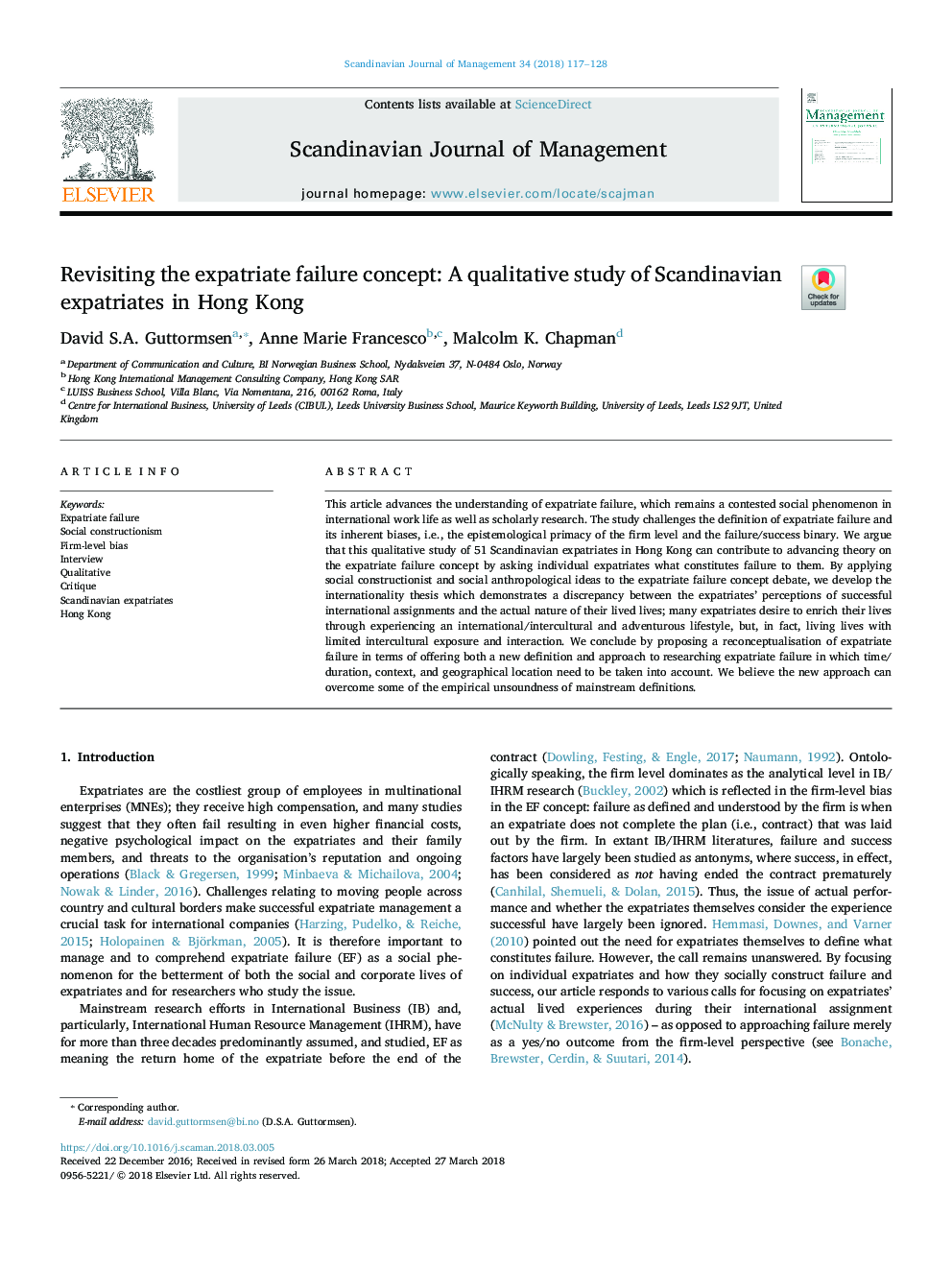| Article ID | Journal | Published Year | Pages | File Type |
|---|---|---|---|---|
| 7254831 | Scandinavian Journal of Management | 2018 | 12 Pages |
Abstract
This article advances the understanding of expatriate failure, which remains a contested social phenomenon in international work life as well as scholarly research. The study challenges the definition of expatriate failure and its inherent biases, i.e., the epistemological primacy of the firm level and the failure/success binary. We argue that this qualitative study of 51 Scandinavian expatriates in Hong Kong can contribute to advancing theory on the expatriate failure concept by asking individual expatriates what constitutes failure to them. By applying social constructionist and social anthropological ideas to the expatriate failure concept debate, we develop the internationality thesis which demonstrates a discrepancy between the expatriates' perceptions of successful international assignments and the actual nature of their lived lives; many expatriates desire to enrich their lives through experiencing an international/intercultural and adventurous lifestyle, but, in fact, living lives with limited intercultural exposure and interaction. We conclude by proposing a reconceptualisation of expatriate failure in terms of offering both a new definition and approach to researching expatriate failure in which time/duration, context, and geographical location need to be taken into account. We believe the new approach can overcome some of the empirical unsoundness of mainstream definitions.
Related Topics
Social Sciences and Humanities
Business, Management and Accounting
Strategy and Management
Authors
David S.A. Guttormsen, Anne Marie Francesco, Malcolm K. Chapman,
